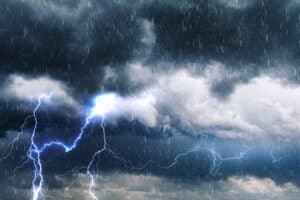Stay informed, get tested early, and seek immediate treatment if symptoms appear. Here's what you need to know.

The National Institute for Communicable Diseases (NICD) has warned of a significant surge in malaria cases in South Africa’s endemic provinces.
The institute raised concerns over numerous instances of severe malaria – a condition exacerbated by delayed detection or treatment.
Malaria health alert
The warning, issued late on Wednesday, notes the swift escalation of untreated malaria into severe illness; and even death in some instances.
The NICD says immediate attention to symptoms such as fever or flu-like ailments is crucial.
Start treatment ASAP
Those who reside in, or who recently travelled to high-risk zones in Limpopo, Mpumalanga and KwaZulu-Natal within the past six weeks should undergo testing as a matter of urgency.
The NICD says it is vital for residents who are at risk to discuss their travel history with their healthcare providers and begin the appropriate treatment regimen as soon as possible.
Moreover, the NICD has cautioned about the possibility of Odyssean, or “taxi malaria,” a form transmitted by “hitch-hiking mosquitoes”.
What is ‘taxi malaria’
Taxi malaria is transmitted by translocated mosquitoes. An earlier research paper published by the NICD said “odyssean cases are inevitable in South Africa.”
This is largely due to the “volume of road, rail, and air traffic from high-risk areas in Gauteng and other non-endemic provinces.”
Even in the absence of a travel history, the research team said “malaria should always be kept in mind as the cause of unexplained fever and thrombocytopenia.”
Malaria symptoms
On Wednesday, the NICD reiterated this point, stating ‘taxi malaria’ should be considered in cases where patients exhibit unexplained fever which progressively worsens.
Other symptoms include a low platelet count, even if they haven’t recently visited an endemic area.
The NICD ended with an urgent plea for individuals to seek medical help promptly as the initial non-specific symptoms of both malaria and Covid-19, including fever, chills, headaches, fatigue, and muscle pain, are similar.
Support Local Journalism
Add The Citizen as a Preferred Source on Google and follow us on Google News to see more of our trusted reporting in Google News and Top Stories.






